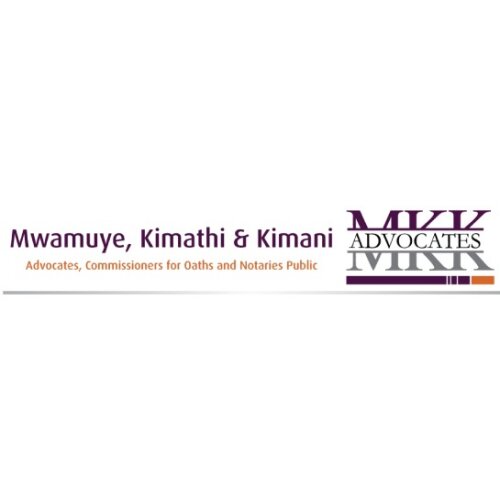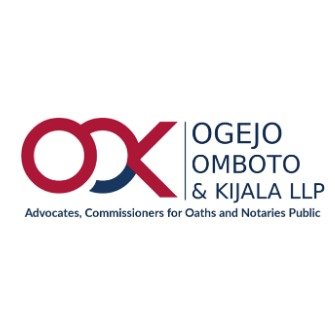Best Art & Cultural Property Law Lawyers in Kisumu
Share your needs with us, get contacted by law firms.
Free. Takes 2 min.
List of the best lawyers in Kisumu, Kenya
About Art & Cultural Property Law in Kisumu, Kenya
Art & Cultural Property Law in Kisumu, Kenya, involves the legal frameworks that govern the protection, transfer, and ownership of artworks, cultural artifacts, and heritage properties. This area of law addresses issues pertaining to intellectual property rights, cultural heritage protection, export and import regulations, and restitution claims. Kisumu, being a vibrant cultural hub within Kenya, places significant importance on preserving its rich cultural heritage. As such, understanding and navigating the local legal landscape is crucial for artists, collectors, institutions, and legal professionals alike.
Why You May Need a Lawyer
People may require legal assistance in Art & Cultural Property Law for a variety of reasons, including:
- Disputes over Ownership: Legal disputes can arise over the ownership of artworks or cultural artifacts.
- Intellectual Property Rights: Creators and artists might need assistance in protecting their intellectual property rights.
- Purchase and Sale Agreements: Legal expertise may be needed to draft or review contracts for the sale or purchase of art.
- Export and Import Regulations: Navigating the complexities of cultural export and import restrictions.
- Cultural Heritage Protection: Legal counsel may assist in matters involving the preservation of cultural heritage sites or artifacts.
- Restitution Claims: Addressing claims for the return of cultural objects to their rightful owners or places of origin.
Local Laws Overview
Several key aspects of local laws are particularly relevant to Art & Cultural Property Law in Kisumu, Kenya:
- The National Museums and Heritage Act: This legislation provides the framework for the protection and management of Kenya's cultural heritage.
- Intellectual Property Act: Governs the protection of copyrights, trademarks, and patents relevant to artworks and cultural creations.
- Export and Import Regulations: Legal procedures for the export and import of cultural objects and artworks.
- Local Ordinances: Kisumu County may have specific regulations pertaining to the preservation and promotion of cultural activities and heritage.
Frequently Asked Questions
What is cultural property?
Cultural property refers to items that are significant to the heritage, archaeology, history, and culture of a society, including artifacts, artworks, and monuments.
How can I prove ownership of an artwork?
Ownership can typically be proven through documentation such as purchase receipts, provenance records, or authentication certificates.
What should I do if I find a cultural artifact?
It is important to report the finding to the appropriate authorities, such as local museums or cultural preservation agencies, to ensure proper documentation and preservation.
Can cultural heritage sites be privately owned?
Yes, cultural heritage sites can be privately owned, but they may still be subject to legal protections and preservation requirements under national or local laws.
How can I protect my artwork legally?
An artist can protect their work by registering it with the appropriate copyright office and ensuring contracts and agreements related to their works are properly drafted and enforceable.
What are the penalties for illegally exporting cultural objects?
Penalties can include fines, imprisonment, or both, depending on the severity of the violation and the specific laws involved.
How is art valued legally in disputes?
The valuation of art in legal disputes can involve assessments by professional appraisers and expert witnesses who consider factors such as provenance, condition, and market trends.
Who is responsible for the preservation of public cultural heritage?
Governmental bodies, such as the National Museums of Kenya, along with other local authorities, are primarily responsible for the preservation of public cultural heritage.
What legal rights do artists have over their works after sale?
Artists may retain certain rights post-sale, depending on the terms of the sale agreement and applicable copyright laws, such as moral rights to attribution and protection against modification of their work.
How do restitution claims for cultural artifacts work?
Restitution claims typically involve legal requests for the return of cultural artifacts to their country or community of origin, often requiring negotiation and legal processes between different jurisdictions and parties.
Additional Resources
For more assistance and information, consider exploring these resources:
- National Museums of Kenya: Offers guidance on heritage protection.
- Kisumu County Government Cultural Affairs Department: Provides local regulations and initiatives on cultural property.
- Kenya Copyright Board: Manages intellectual property and copyrights in Kenya.
Next Steps
If you're seeking legal assistance in Art & Cultural Property Law in Kisumu, Kenya, here are some steps to consider:
- Consult a Lawyer: Find a legal professional specialized in art and cultural property law to assess your situation.
- Gather Documentation: Collect all relevant documentation and evidence relating to your issue or inquiry.
- Understand Your Rights: Educate yourself on your rights and obligations under Kenyan law to better inform your discussions with legal representatives.
- Engage with Local Agencies: Contact local cultural agencies or bodies for guidance and support regarding cultural property matters.
Lawzana helps you find the best lawyers and law firms in Kisumu through a curated and pre-screened list of qualified legal professionals. Our platform offers rankings and detailed profiles of attorneys and law firms, allowing you to compare based on practice areas, including Art & Cultural Property Law, experience, and client feedback.
Each profile includes a description of the firm's areas of practice, client reviews, team members and partners, year of establishment, spoken languages, office locations, contact information, social media presence, and any published articles or resources. Most firms on our platform speak English and are experienced in both local and international legal matters.
Get a quote from top-rated law firms in Kisumu, Kenya — quickly, securely, and without unnecessary hassle.
Disclaimer:
The information provided on this page is for general informational purposes only and does not constitute legal advice. While we strive to ensure the accuracy and relevance of the content, legal information may change over time, and interpretations of the law can vary. You should always consult with a qualified legal professional for advice specific to your situation.
We disclaim all liability for actions taken or not taken based on the content of this page. If you believe any information is incorrect or outdated, please contact us, and we will review and update it where appropriate.














